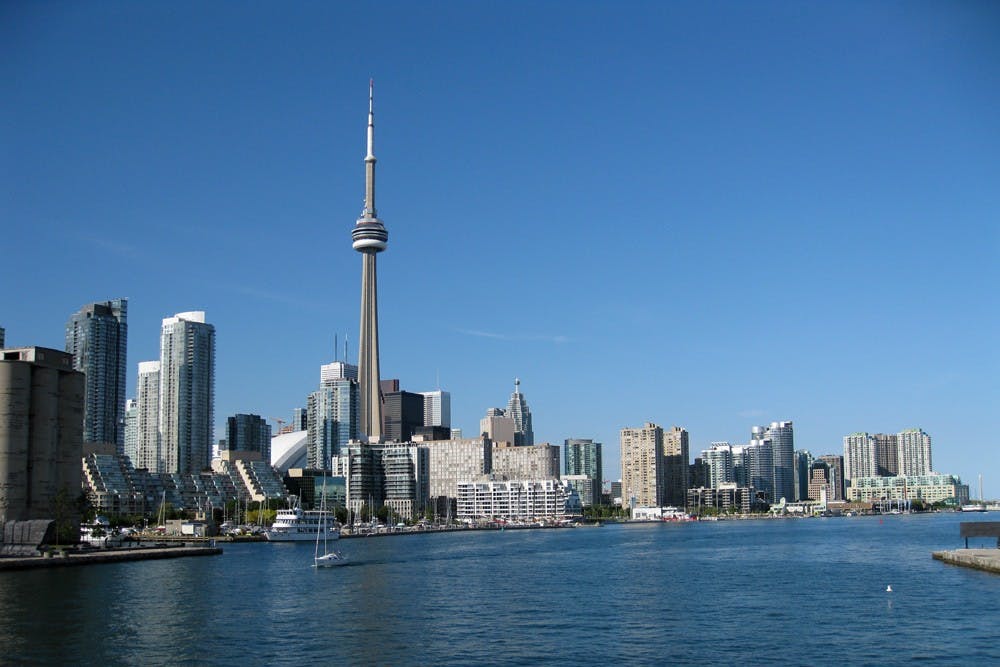Dustin Perez has thought about fleeing to Canada after this year’s presidential election.
Perez, a senior psychology and business major, favors neither Hillary Clinton nor Donald Trump. He doesn’t feel he would be welcomed in the country if Trump were elected because he is a minority and doesn’t plan to vote for Clinton because he doesn’t “trust her words.”
Whatever the result, Perez is not the only student who’s considered leaving. The idea of fleeing to Canada has been considered a means of coping with either candidate’s win and it is a possible option for UB students.
“I would rather move out to a country where the government actually cares about the people who are part of society,” Perez said. “A developed country should at least prove itself with high quality education, health care and fair security.”
Munroe Eagles, director of Canadian Studies and political science professor, said UB students would be perfect candidates for Canadian immigration.
UB currently offers a joint MA program in American and Canadian studies. The graduate program operates in partnership with nearby Brock University in St. Catharines, Ontario. Eagles believes these opportunities are great for students who want to live in Canada or study there.
“You can actually get a little money, have work experience in Canada and qualify for an expedite visa,” Eagles said.
There are also some governmental differences between the countries as well.
Canada is a constitutional monarchy and the governor general, the viceroy of Queen Elizabeth II, chooses the prime minister who stays in office until there is a change in the majority party. The U.S. is a democratic republic and the nation elects the president for a four-year term.
In the U.S. there are checks and balances to prevent one branch from holding too much power. In Canada, the prime minister has the power to override majority opinion and pass legislations.
Eagles thinks the U.S.’s divided government has made this election frustrating for so many people. He said the concept of leaving the U.S. during election season has become a running joke in Canada.
“I find it hard to take it seriously. A lot of people talked about it with George W. Bush,” Eagles said. “To go on the basis of an election result, it’s probably the wrong reason. There are many more compelling reasons to go to Canada.”
Eagles holds a dual citizenship in Canada and the U.S. and said it’s “fascinating” to live in Buffalo right on the boarder.
Rob Martinez, a junior accounting major, said the election has become very comical, but said he would rather stick things out in the U.S.
“My roots are in America and I have so much family here,” Martinez said. “I don’t know anyone in Canada so I would never consider leaving. How can I expect America to be great if I turn my back on it and run away from my problems?”
Some Canadian communities – such as Cape Breton, Nova Scotia - have used the joke as a way to convince Americans to relocate. If some are to take the move seriously, however, it’s better to weigh the decision heavily before abruptly leaving the U.S.
“It’s a big life changing decision to uproot and move to a different country,” Eagles said. “I’m as concerned about the election as the next person as a political scientist. At the same time, I think it’s a hasty decision that will be regretted down the line.”
One of the many likenesses Eagles has noticed between the countries are regions that resemble one another, such and Toronto and New York City, and Halifax and Maine.
“Canada doesn’t get much attention. It’s right on our border and our most important ally,” Eagles said. “We have a lot going on in America and we tend to keep our sights within our own borders. The best way to learn about America is to get outside and have a look back.”
Benjamin Blanchet is a staff writer and can be reached at arts@ubspectrum.com

Benjamin Blanchet is the senior engagement editor for The Spectrum. His words have been seen in The Buffalo News (Gusto) and The Sun newspapers of Western New York. Loves cryptoquip and double-doubles.





